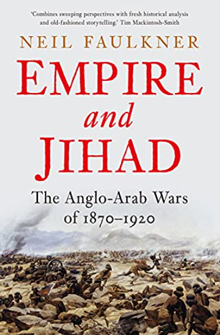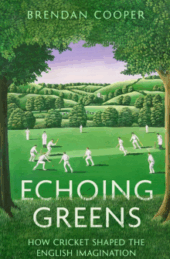It seems fitting given recent events, to examine the history of jihad in Northeast Africa through the lens of western interventionism. As Warren Dockter, author of Churchill and the Islamic World, puts it: Empire and Jihad is a ‘sobering bridge’ between British imperialist activity in the 19th century and the ‘“war on terror” in the twenty-first.’ A very timely topic indeed.
Faulkner’s analytical framework suggests that both western imperialism and Islamic jihadism were destructive ideologies used as pretexts or launchpads for establishing oppressive, predatory regimes. As such, the victims of the ‘Anglo-Arab Wars’ were an often-impoverished peasant class, as well as the victims of the Arab slave trade, specifically in Egypt, the Sudan and Somaliland. This divorces Faulkner’s arguments from narratives which glorify Britain’s colonial past and from revisionist histories which paint repressive regimes as liberation. Whilst not perfect (no historian can fully separate themselves from bias) this even-handedness demonstrates Faulkner’s dedication to presenting history as it was, rather than as some might wish it had been, and marks it as an important addition to current debates.
Beginning with British explorations of central Africa in the mid-19th century, Faulkner guides the reader through the detailed campaigns, revolts and political intrigues that ultimately led to the British bombing of Somaliland in 1920. A topic as broad and complex as this one could have easily become incomprehensible or dull in less capable hands, yet Faulkner masterfully narrates events with both clarity and an engaging style. It is also clear that his arguments and insertions into the narrative are founded in extensive research, the historical analysis both justified and thought-provoking.
More, whilst events take precedence, Faulkner also takes the time to weave in the socio-political threads which make up any historical landscape. From explaining the social pressure on British governments to intervene in Africa, to describing the race-based class systems of Egypt and the Sudan, it is clear that Faulkner sees history as a bottom-up process whereby people are not victims of circumstance, but are indeed shaped by it. This is central to his claim that interventionism, capitalism and Islamic extremism cannot be separated in this period, and that extremist ideologies are most prevalent during times of great upheaval, suffering and oppression. Again, an unforgiving parallel to, and comment on, more modern imperialist and jihadist activity in the Middle East.
Faulkner’s insightful central thesis, his excellent execution and attitude towards historical phenomena, as well as the stark relevance of this topic for today’s world, then makes this a vital work of historical non-fiction. Indeed, I would agree with Dockter that anyone who wishes to understand the long, bloody history of relations between the West and Middle East, as well as imperialism and extremism in general, should read this book. It is an endeavour you will not regret.
Empire and Jihad: The Anglo-Arab Wars of 1870-1920, by Neil Faulkner is published by Yale University Press.







